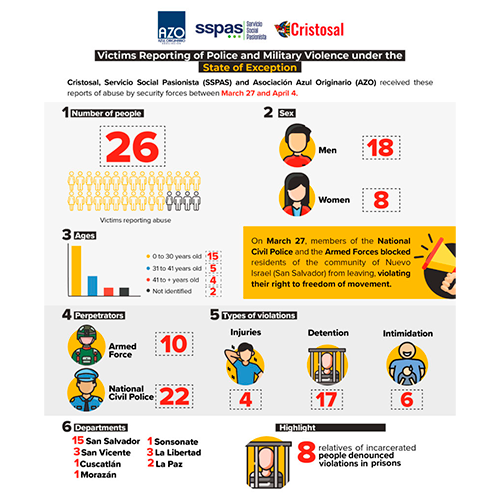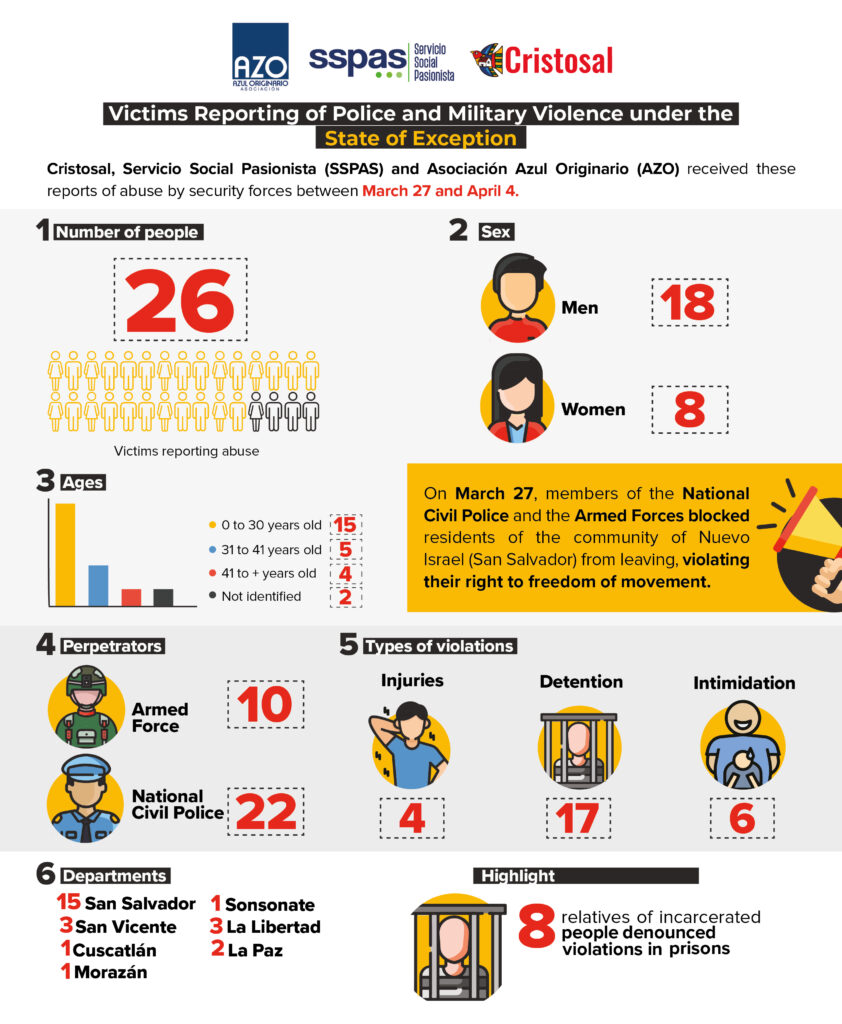
Organizations are calling for comprehensive security policies that do not violate human rights
By alejandra sandoval
In the context of the increase in homicidal violence by gangs and the Bukele administration’s response, national and international human rights organizations urge the State of El Salvador to implement comprehensive citizen security policies with a focus on human rights, gender, and intersectionality, as well as clear mechanisms for citizen participation and accountability to reduce crime rates and human rights violations.
The organizations pointed out that violence in the country has different structural causes and that it is perpetrated by multiple actors, that must be addressed responsibly by the State, guaranteeing the protection of all its people by adopting public policies based on respect for human dignity, comprehensive reparations for victims and due process.
In a press conference, they requested that the prosecution of the crime should have a scientific approach, based on evidence and technical information that allows for the as well as criminal investigation and real strategies that lead to coordination within the criminal justice system beyond punishment and incarceration.
For the organizations, the state of exception deepens the essentially repressive response of the State, and, from the point of view of the organizations, it is, in fact a policy of police abuse on the streets, especially in poor and vulnerable communities. This is evidenced by the fact that three of the organizations in just the first week have received reports from 26 victims of abuse of authority.
In fact, the data reflects that most of the victims have been victims of the National Civil Police (PNC) and the Armed Forces of El Salvador, resulting in reports of 16 arbitrary detentions, six cases of intimidation and 3 cases of bodily harm.
The spokespersons of the organizations expressed their rejection of violence of all kinds and extended their expressions of solidarity to the families and communities that historically experience the impact of violence. As part of civil society, they actively contribute to the defense and protection of the human rights of people facing violence. They also provide technical support to strengthen state institutions in different areas.
In addition, the organizations ratified their commitment to continue contributing to the design and implementation of public policies from a citizen security approach, plans and assistance protocols that ensure compliance with the commitments regarding the prevention of violence, attention to victims, prosecution of crime, rehabilitation, and social reintegration within the framework of respect for human rights, international human rights law and international humanitarian law.

